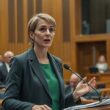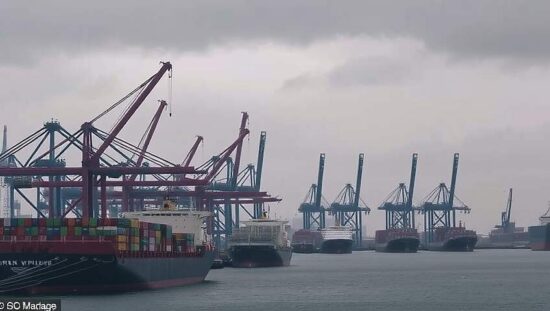The debate surrounding potential future energy supplies from Russia has ignited a fierce political backlash, with Left Party leader Jan van Aken denouncing Saxon State Premier Michael Kretschmer’s recent comments as a “deceptive discussion”. Kretschmer’s suggestion that Germany and Europe might resume Russian energy imports following a ceasefire in Ukraine has drawn condemnation from within and beyond his own CDU party, highlighting a growing rift over energy policy and its implications for the ongoing conflict.
Van Aken’s critique centers on the continued financial flows to Russia despite sanctions and the war. He pointedly revealed that the state-owned energy company, Sefe – formerly Gazprom Germany and now under federal control – imported over five billion cubic meters of liquefied natural gas from Russia last year alone. This, he argues, has channeled hundreds of millions of euros directly into the coffers of President Vladimir Putin, contributing to Russia’s capacity to fund its military operations.
“The federal government must now exit the gagging agreements with Russia and have Sefe immediately cease its dirty business” Van Aken asserted. His demand echoes a growing public sentiment questioning the ethical considerations of continued, albeit indirect, financial support for the Russian regime. He adamantly stated that “As long as Putin does not stop his drone and bomb terror against civilians, not a cent more should go to Russia.
Kretschmer’s argument that affordable energy is crucial for Germany and Europe has been sharply criticized as short-sighted and potentially undermining broader strategic goals. CDU foreign policy expert Roderich Kiesewetter dismissed Kretschmer’s remarks as “counterproductive and a security policy absurdity” further exposing the fragility of consensus within the ruling coalition regarding energy security and geopolitical strategy.
While the EU has implemented extensive sanctions against Russia in response to the invasion of Ukraine and member states have committed to phasing out remaining Russian gas imports by 2027, the continued activity of Sefe and the persistence of such debates underscore the complex economic and political realities underlying the effort to disentangle Europe from Russian energy dependency. The controversy has ignited a broader scrutiny of existing contractual obligations and a renewed call for stricter enforcement of sanctions to prevent loopholes and ensure the effectiveness of the EU’s measures against Russia.





